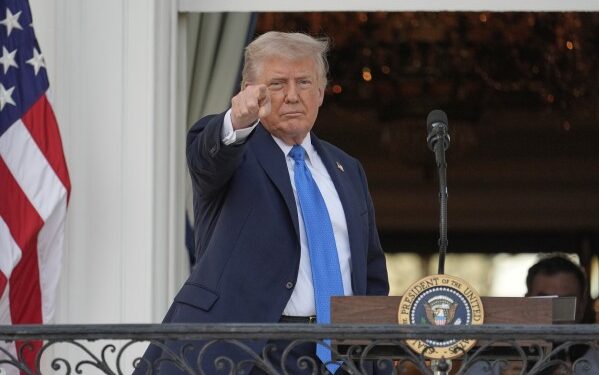U.S. President Donald Trump has imposed a U.S. travel ban and immigration restrictions that sparked global debate.
Commonly referred to as the “Trump Travel Ban,” these measures targeted multiple predominantly Muslim-majority countries, citing national security concerns
The Trump administration said the move was prompted by what it described as weak traveller vetting systems in some countries, the presence of terrorist groups within their borders, and a lack of cooperation in accepting deported nationals.
The Trump-imposed U.S. bans implemented by Donald Trump marked a significant shift in U.S. immigration policy.
While the administration framed the moves as necessary for national security, the policies generated substantial legal, social, and diplomatic backlash.
The Trump-imposed U.S. ban takes effect Monday, June 9, 2025, a cushion that may avoid the chaos that unfolded at airports nationwide when a similar measure took effect with virtually no notice in 2017. Trump, who signalled plans for a new ban upon taking office in January, appears to be on firmer ground this time after the Supreme Court sided with him.
Some countries were also flagged for high numbers of citizens who overstayed their U.S. visas.
12 countries fully banned from U.S. travel
Among the 12 countries banned outright from entering the United States are several African nations. These include:
- Chad
- Equatorial Guinea
- Eritrea
- Libya
- Republic of the Congo
- Somalia
- Sudan
Also affected by the full ban are:
- Afghanistan
- Haiti
- Iran
- Myanmar
- Yemen
7 Countries face travel restrictions
In addition to the bans, seven countries were placed under strict travel restrictions, limiting or delaying visa processing:
- Burundi
- Sierra Leone
- Togo
Other restricted nations include:
- Cuba
- Laos
- Turkmenistan
- Venezuela
Trump said some countries had “deficient” screening and vetting or had historically refused to take back their own citizens.
His findings rely extensively on an annual Homeland Security report of visa overstays of tourists, business visitors, and students who arrive by air and sea, singling out countries with high percentages of remaining after their visas expired.
The inclusion of Afghanistan angered some supporters who have worked to resettle its people. The ban makes exceptions for Afghans on Special Immigrant Visas, generally people who worked most closely with the U.S. government during the two-decade-long war there.











